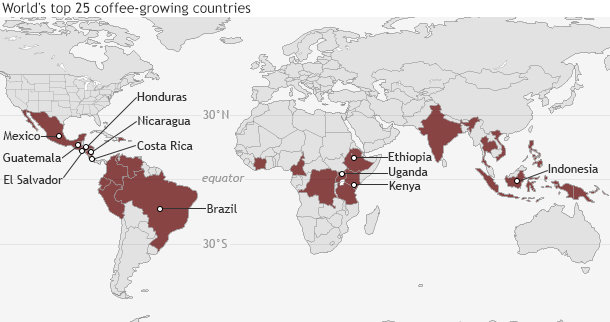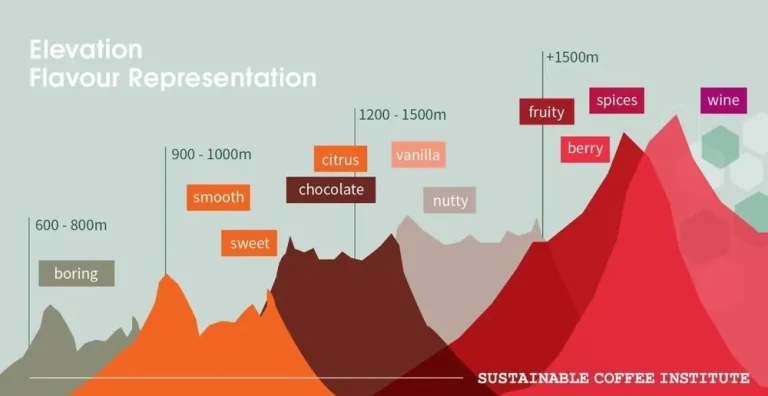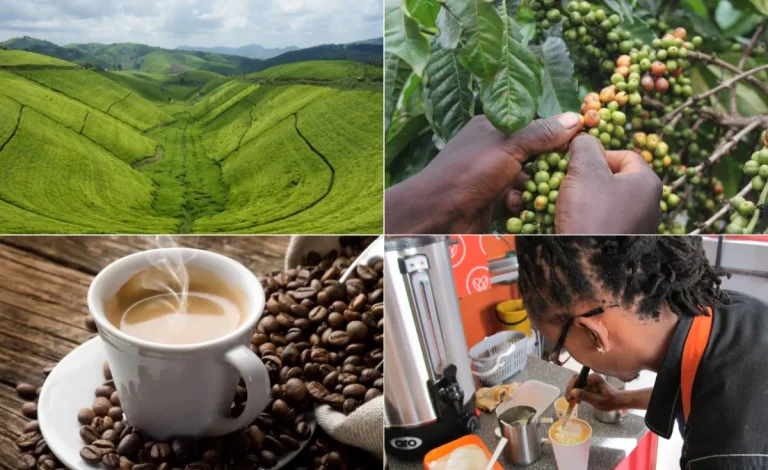Are you a coffee lover looking to make a positive impact with each cup you brew? Fair Trade Coffee may be the answer you’re looking for.
In this article, we will explore the significance of Fair Trade Coffee in the global market, the benefits of Fair Trade certification, the challenges faced by small coffee farmers, and the impact of Fair Trade on these farmers.
We will also delve into the operating mechanisms of the coffee market, the importance of Fair Trade Coffee certification, and the quality and sustainability of Fair Trade Coffee. Join us as we uncover the diverse world of Fair Trade Coffees and the impact of geographic origin on coffee flavors.
Key Takeaways:
- Fair trade coffee provides a solution to the challenges faced by small coffee farmers, ensuring fair prices, access to credit, and durational contracts.
- Fair trade certification promotes sustainable coffee production practices and provides environmental and social benefits.
- Coffee lovers can explore a diverse selection of high-quality and unique flavors from different countries, all while making a positive impact on the global market through fair trade purchases.
Introduction to Fair Trade Coffee
Introduction to Fair Trade Coffee explores the ethical practices and economic impact of cultivating coffee beans under fair trade principles.
Fair Trade Coffee traces its origins back to the mid-20th century when organizations like Global Exchange played a pivotal role in advocating for fair wages and working conditions for coffee farmers in developing countries.
Through Fair Trade practices, these farmers receive a fair price for their beans, ensuring a sustainable livelihood and give the power toing them to invest in their communities.
The certification process for Fair Trade Coffee involves rigorous standards set by organizations like Fairtrade International, ensuring that the entire supply chain adheres to ethical practices.
This certification not only benefits the farmers but also resonates with consumers who seek to support sustainable and socially responsible products in the global market.
Understanding the Significance in the Global Market
Understanding the Significance of Fair Trade Coffee in the Global Market involves recognizing its transformative impact on communities in countries like Peru, Colombia, Guatemala, and Ethiopia.
Fair Trade Coffee has gained remarkable traction in the global market due to the growing demand for ethically sourced products. The certification standards, such as Fair for Life, ensure that the entire supply chain is held to high social and environmental benchmarks, benefiting both producers and consumers. Countries like Peru, known for its rich coffee culture and biodiversity, along with Colombia, Guatemala, and Ethiopia, play crucial roles in producing high-quality Fair Trade Coffee beans.
Benefits of Fair Trade Certification
The Benefits of Fair Trade Certification extend beyond economic gains, encompassing community give the power toment, environmental stewardship, and sustainable practices within the coffee industry.
One of the key advantages of Fair Trade Certification is its positive impact on local communities. By guaranteeing fair wages and promoting social projects, it helps to uplift and give the power to the individuals residing in coffee-producing regions. This give the power tos communities to invest in education, healthcare, and infrastructure, leading to overall development and improved quality of life.
The Reality of Small Coffee Farms
Small Coffee Farms face numerous challenges, including issues related to fair compensation, climate change effects, and adherence to Fairtrade Standards.
In their pursuit of a living income, smallholder farmers often struggle to cover basic operational costs and lack access to resources for modernizing their farms. The unpredictable weather patterns brought about by climate change pose a significant threat to their crops, leading to reduced yields and financial instability.
Meeting the rigorous Fairtrade Standards adds another layer of complexity, demanding careful attention to social, economic, and environmental sustainability. Achieving certification involves additional costs and time commitments that can strain small operations already operating on tight budgets.
Challenges Faced by Small Coffee Farmers
Small Coffee Farmers encounter hurdles related to volatile commodity markets, fluctuating prices, and the pursuit of sustainable living income strategies.
Market fluctuations often lead to unpredictable incomes for smallholder farmers, making it challenging to plan for the future or invest in their farms effectively. Price instability can result in significant financial losses for these farmers, impacting their livelihoods and ability to provide for their families.
As a response to these challenges, implementing living income strategies becomes crucial to ensure that farmers earn enough to cover their basic needs and invest in sustainable agricultural practices. This shift towards sustainable income models has the potential to create more stability and resilience for small coffee farmers in the face of market uncertainties.
Impact of Fair Trade on Small Coffee Farms
The Impact of Fair Trade on Small Coffee Farms is evident through increased give the power toment of producers, strengthened cooperatives, and the broader Fair Trade Coffee Movement.
Smallholder farmers, through Fair Trade, gain greater control over their production processes and receive fair prices for their goods, leading to improved livelihoods and economic stability.
- Empowerment comes not only through financial gains but also knowledge sharing and capacity building, enabling farmers to make informed decisions about their crops and businesses.
- Cooperatives play a crucial role in Fair Trade, offering small-scale producers collective bargaining power, access to resources, and opportunities for sustainable growth.
- The broader implications of the Fair Trade Coffee Movement extend beyond financial aspects, promoting social responsibility, environmental sustainability, and ethical practices.
Operating Mechanisms of the Coffee Market
Operating Mechanisms of the Coffee Market involve intricate interactions between pricing mechanisms, Fair Trade practices, and overall market operations.
The dynamics of the coffee market are heavily influenced by various factors that determine the prices of coffee beans. Price determinants such as supply and demand, global economic conditions, weather patterns, and production costs play a crucial role in setting the market price.
The Fair Trade movement has emerged to promote more equitable practices in the coffee industry, ensuring that farmers receive fair compensation for their work. By guaranteeing a minimum price for coffee beans, Fair Trade helps stabilize market prices and supports sustainable production practices.
Price Determination in the Coffee Market
Price Determination in the Coffee Market is influenced by various factors, including commodity market trends, Fairtrade Minimum Price regulations, and the concept of Fairtrade Premium.
Commodity market dynamics play a significant role in determining the prices of coffee, with factors such as supply and demand, weather conditions affecting harvests, and geopolitical events impacting global coffee trade.
Fairtrade Minimum Price regulations ensure that producers receive a fair and sustainable price for their coffee beans, contributing to their livelihoods and promoting ethical practices within the industry.
The concept of Fairtrade Premium allows consumers to support social and environmental projects in coffee-growing communities by paying a premium for Fairtrade-certified products.
Role of Fair Trade in Market Operations
The Role of Fair Trade in Market Operations underscores its pivotal role in fostering equitable international trade agreements, exemplified by organizations like Max Havelaar and Fair Trade Labeling Organizations International.
Fair Trade operates as a powerful tool in ensuring that producers in developing countries receive fair compensation for their goods, challenging the traditional exploitative practices prevalent in global trade. By upholding stringent standards for labor conditions, environmental sustainability, and community development, Fair Trade certification schemes provide consumers with a guarantee that their purchases support ethical practices.
Importance of Fair Trade Coffee Certification
The Importance of Fair Trade Coffee Certification lies in establishing ethical guidelines for roasters, give the power toing buyers with conscientious choices, and supporting producers and cooperatives in sustainable practices.
For roasters, the Fair Trade Certification ensures that ethical standards are met in the sourcing and production of coffee beans, which ultimately contributes to the reputation and integrity of their brands. Buyers, on the other hand, are give the power toed with the knowledge that their purchases are supporting fair wages and better working conditions for farmers. This transparency allows them to make conscientious choices that align with their values and beliefs.
Criteria for Roasters/Buyers
Criteria for Roasters and Buyers in Fair Trade Coffee Certification encompass adherence to Fixed Purchase Price Guidelines, facilitating access to credit for growers, and engaging in Durational Contracts for long-term commitments.
Roasters seeking Fair Trade Certification must ensure that they adhere to the established Fixed Purchase Price Guidelines, which are designed to provide fair compensation to coffee farmers. By guaranteeing a minimum price, these guidelines aim to protect growers from market fluctuations and ensure their financial stability.
Buyers involved in Fair Trade Coffee Certification play a crucial role in enabling access to credit for the coffee growers. This is achieved through establishing partnerships with financial institutions that offer favorable lending terms to support sustainable farming practices and community development initiatives.
- Buyers are expected to commit to Durational Contracts, which entail long-term agreements to purchase coffee from certified Fair Trade producers. These contracts help create stability for farmers by guaranteeing consistent demand and pricing over multiple harvests, fostering mutual trust and long-term relationships in the global coffee supply chain.
Fixed Purchase Price Guidelines
Fixed Purchase Price Guidelines in Fair Trade Coffee Certification ensure that farmers receive fair compensation above market prices, aligning with established Fairtrade Standards.
By setting a minimum price, the Fixed Purchase Price Guidelines play a crucial role in protecting farmers from volatile market conditions and ensuring a stable income. This not only give the power tos farmers economically but also supports sustainable agricultural practices. Compliance with Fairtrade Standards guarantees ethical sourcing, environmental sustainability, and community development within the coffee industry.
Access to Credit for Growers
Access to Credit for Growers under Fair Trade Coffee Certification initiatives supports smallholder farmers and cooperatives in implementing sustainable living income strategies.
By providing access to credit within Fair Trade frameworks, growers are give the power toed to invest in their farms, purchase necessary inputs, and improve production quality, ultimately leading to increased yields and better prices for their products. This financial support plays a crucial role in breaking the cycle of poverty for many small-scale farmers, allowing them to secure a more stable income and improve their quality of life.
Credit access enables cooperatives to collectively invest in infrastructure, training, and technology, enhancing the overall efficiency and competitiveness of their operations. This financial assistance not only benefits the individual growers but also contributes to the economic development of the entire community, creating a ripple effect of positive impact.
Durational Contracts
Durational Contracts in Fair Trade Coffee Certification ensure stability for producers and cooperatives by securing long-term commitments at fair market prices.
These contracts play a crucial role in creating a predictable income stream for small-scale farmers and producer cooperatives, enabling them to plan for the future with more certainty. By establishing a fixed price over an extended period, producers are shielded from market volatility and fluctuations, providing them with financial security. This stability allows them to invest in sustainable farming practices, improve living standards, and provide education and healthcare for their communities.
Moreover, durational contracts foster trust and build stronger relationships between producers and buyers, promoting mutual respect and understanding. This helps in fostering a supportive and transparent trading environment that benefits both parties in the long run. These contracts ensure that the fair trade principles of equality, transparency, and ethical business practices are upheld throughout the partnership, emphasizing the importance of social responsibility and ethical sourcing.
Criteria for Producers
Criteria for Producers in Fair Trade Coffee Certification encompass supporting women growers, promoting climate action initiatives, and facilitating the adoption of living income strategies for sustainable agriculture.
Producers seeking Fair Trade Certification must meet stringent criteria to ensure the values of give the power toment, sustainability, and equity are upheld. Empowerment of women growers is a key aspect, aiming to provide them with fair wages, access to resources, and decision-making power within the supply chain. A strong focus on climate-friendly practices is essential, encouraging the use of eco-friendly production methods, energy efficiency, and carbon offsetting measures.
In addition, the certification requires producers to implement livelihood strategies that aim to improve the economic well-being of farming communities. This involves fair pricing mechanisms, capacity building programs, and investments in community development projects. Achieving Fair Trade Certification signifies a commitment to social responsibility and sustainable practices.
Quality and Sustainability in Fair Trade Coffee
Quality and Sustainability are paramount in Fair Trade Coffee, emphasizing enhanced production practices that yield environmental and social benefits to communities worldwide.
Regarding Fair Trade Coffee, the focus on improving cultivation methods and ensuring sustainable practices not only contributes to higher quality products but also plays a crucial role in fostering environmental stewardship.
By utilizing organic farming techniques, minimizing chemical inputs, and supporting biodiversity, Fair Trade Coffee production safeguards ecosystems and reduces the carbon footprint of the entire supply chain.
The emphasis on fair wages and favorable working conditions in the Fair Trade system has a tangible positive impact on the livelihoods of farmers and their communities, promoting social well-being and economic stability.
Enhanced Coffee Production Practices
Enhanced Coffee Production Practices in Fair Trade settings involve collaboration between producers, cooperatives, and adherence to stringent Fairtrade Standards for sustainable and ethical cultivation.
Producers have adopted various innovative methods to improve the quality and yield of their coffee crops. Cooperatives play a vital role in providing resources, training, and support to ensure that member farmers meet the Fairtrade guidelines set for Fair Trade certification.
Through cooperative efforts, small-scale coffee growers can access markets and negotiate fair prices for their beans. The integration of sustainable agricultural practices not only benefits the environment but also leads to better product quality that meets the ethical standards of the Fair Trade movement.
Environmental and Social Benefits
Environmental and Social Benefits of Fair Trade Coffee extend to initiatives like those by the Global Exchange Organization and producers like Thanksgiving Coffee, emphasizing sustainability, climate action, and give the power toment of women growers.
One significant positive impact of Fair Trade Coffee is its contribution to environmental conservation. Through sustainable farming practices promoted by organizations like Global Exchange, coffee production under this model aims to preserve biodiversity, reduce deforestation, and minimize the use of harmful chemicals, supporting a healthier ecosystem.
Moreover, Fair Trade Coffee plays a crucial role in building climate change resilience. By prioritizing climate-friendly techniques, such as shade-grown coffee, producers like Thanksgiving Coffee help mitigate the impact of global warming on coffee cultivation, ensuring long-term sustainability.
Global Variety of Fair Trade Coffees
The Global Variety of Fair Trade Coffees offers a diverse selection sourced from countries like Peru, Colombia, Guatemala, and Ethiopia, each with unique geographic origins that influence distinctive coffee flavors.
Peruvian coffee, known for its mild acidity and fruity undertones, is grown in high altitudes of the Andes mountains.
Colombian coffee, on the other hand, is renowned for its well-balanced flavor with hints of caramel and nutty notes due to the rich volcanic soil.
Guatemalan coffee, grown under shade trees and volcanic soil, boasts a full body with a bright acidity and complex floral aromas.
Ethiopian coffee is famous for its diverse flavor profiles, ranging from berry-like sweetness to winey acidity, reflecting its heritage as the birthplace of coffee.
Diverse Selection from Different Countries
The Diverse Selection from Different Countries in Fair Trade Coffee showcases the rich offerings supported by the Fair Trade Coffee Movement, Alternative Trade Organizations, and recognized producers like the Specialty Coffee Association of America.
When exploring Fair Trade Coffee options, one may encounter a myriad of flavors originating from countries like Ethiopia, Colombia, Guatemala, and Vietnam. These global collaborations aim to ensure fair prices for farmers and promote sustainable practices in the coffee industry.
Organizations such as Fair Trade USA and Rainforest Alliance play integral roles in certifying coffee as ethically sourced and environmentally friendly. This process involves rigorous standards that encompass fair labor practices, community development, and environmental protection.
Through partnerships with recognized producers such as Starbucks, Lavazza, and Peet’s Coffee, the Fair Trade Coffee Movement continues to expand its reach and impact, fostering a more equitable coffee supply chain for both producers and consumers alike.
Impact of Geographic Origin on Coffee Flavors
The Impact of Geographic Origin on Coffee Flavors under Fair Trade initiatives is notable, leading to distinct tastes influenced by locations like those supported by Max Havelaar, the Global Exchange Organization, and communities such as the Aymara and Quechua.
This diversity in geographic origins plays a crucial role in shaping the flavor characteristics of Fair Trade coffees. For example, the mountainous regions where the Aymara and Quechua communities reside offer unique environmental conditions that contribute to the rich and complex flavor profiles of the coffee beans grown there. Organizations like Max Havelaar and the Global Exchange Organization work directly with these communities to ensure sustainable practices that further enhance the quality of the coffee produced.
Frequently Asked Questions
What is Fair Trade Coffee and why is it important in the global market?
Fair Trade Coffee is a certification system that ensures the fair treatment and payment of coffee farmers in developing countries. It is important in the global market because it promotes ethical and sustainable practices, helps improve the livelihoods of farmers, and supports environmental sustainability.
How does Fair Trade Coffee benefit coffee farmers?
Fair Trade Coffee guarantees that farmers receive fair wages for their labor, provides them with access to credit and training, and offers a premium price for their products. This helps improve their standard of living and allows them to invest in their farms and communities.
What impact does Fair Trade Coffee have on the environment?
Fair Trade Coffee promotes sustainable farming practices that protect the environment by reducing the use of harmful chemicals and encouraging biodiversity. It also supports initiatives for reforestation and the conservation of natural resources.
Is Fair Trade Coffee more expensive than regular coffee?
Yes, Fair Trade Coffee may be more expensive than regular coffee due to the premium price paid to farmers and the additional costs associated with certification. However, many consumers are willing to pay the extra cost to support fair and ethical trade practices.
How can consumers ensure they are purchasing Fair Trade Coffee?
Look for the Fair Trade Certified label on coffee packaging. This indicates that the coffee has been produced and traded according to Fair Trade standards, ensuring a fair and sustainable supply chain.
What can individuals do to support the Fair Trade Coffee movement?
One way to support Fair Trade Coffee is by choosing to purchase Fair Trade Certified products, including coffee, whenever possible. Additionally, educating others about the importance of Fair Trade and advocating for fair and ethical trade practices can make a difference in the global market.






